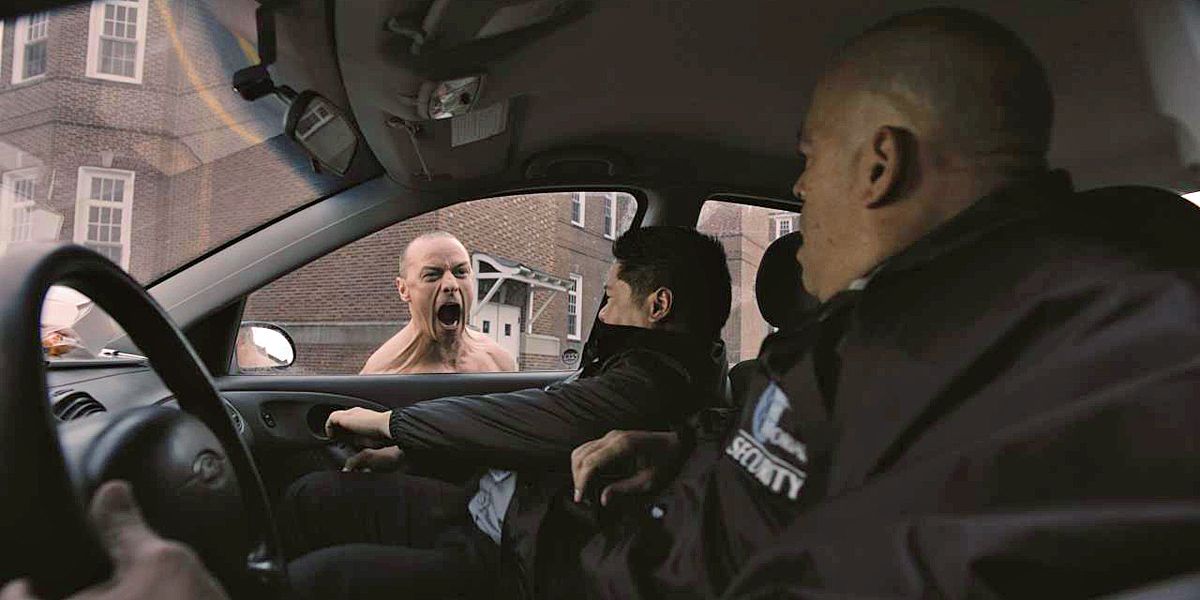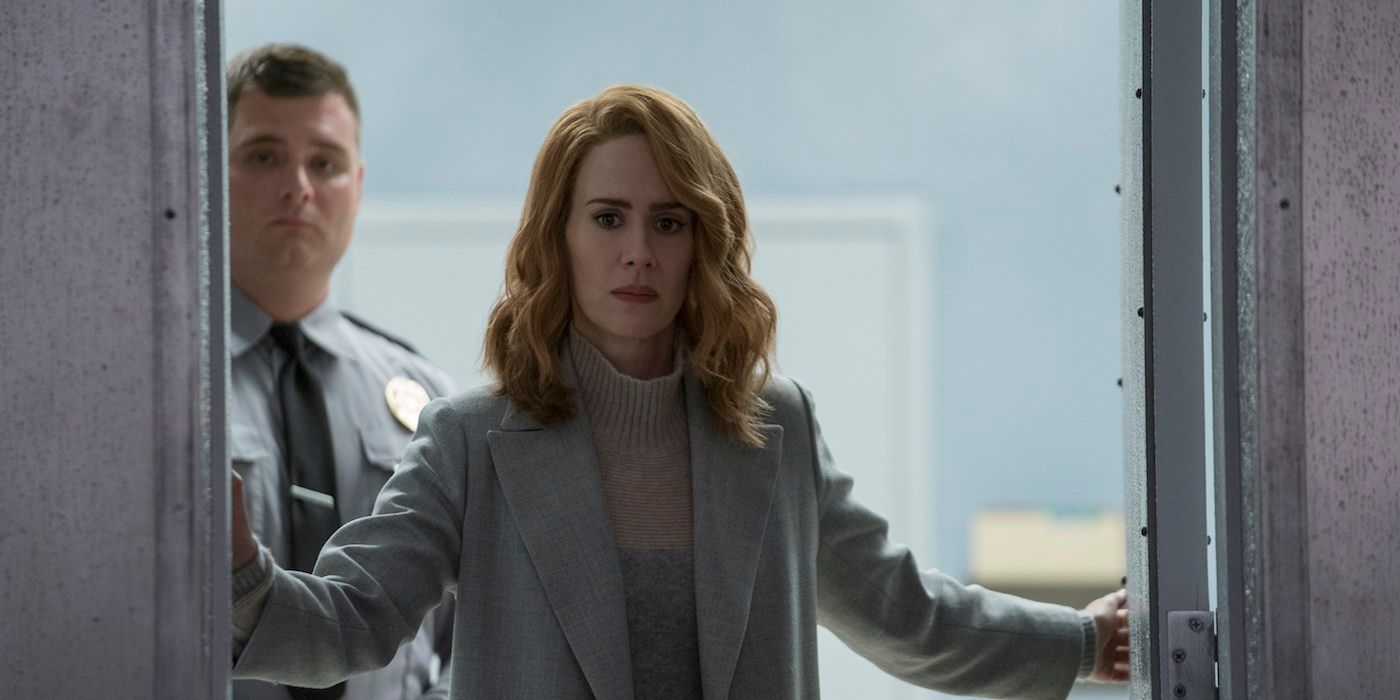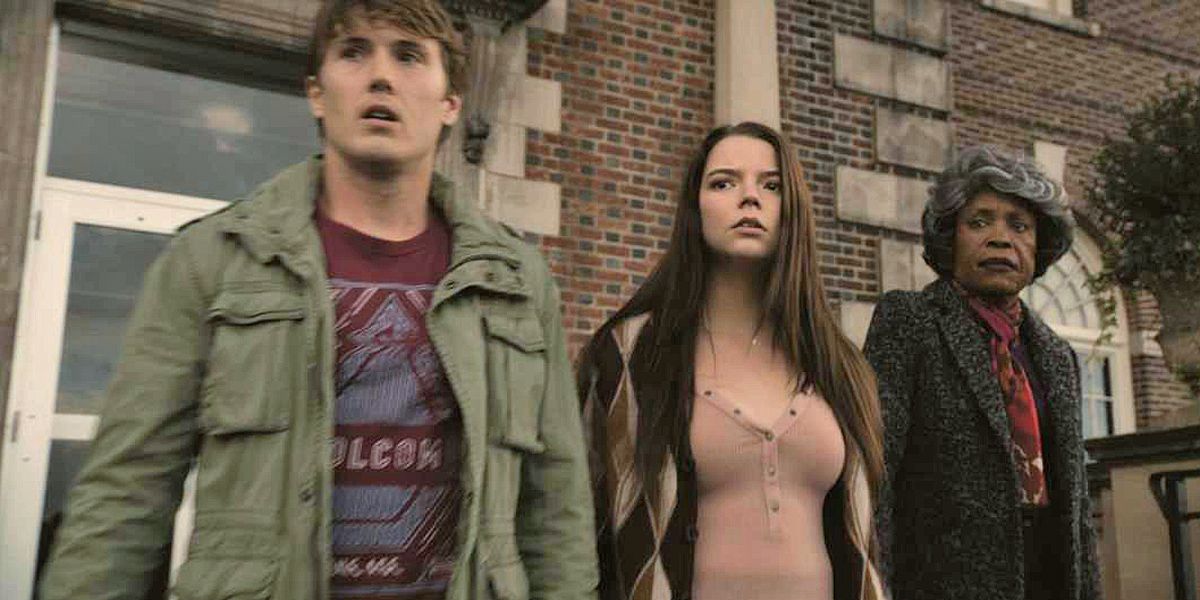WARNING: The following article contains spoilers for M. Night Shyamalan's Glass, in theaters now.
M. Night Shyamalan's superhumans trilogy isn't focused so much on heroes, like the Avengers or the Justice League, but instead the vigilantes and villains who operate in the shadows. Glass caps off what Unbreakable and Split began by introducing a mental facility that attempts to convince David Dunn (Bruce Willis), Elijah Price (Samuel L. Jackson) and Kevin Wendell Crumb (James McAvoy) that they're not superhuman.
Elijah, however, concocts a scheme to expose their existence to the world by pitting the Beast and David against each other. But in the end, they're killed by a hit squad led by head psychiatrist Ellie Staple (Sarah Paulson). As she tries to cover up the matter, Glass brings to light a major, and very silly, plot hole that diminishes everything that preceded it.
Ellie is part of the mysterious Clover organization (all members have a black Clover tattoo on their bodies), whose role is to maintain order in the world by ensuring that superhumans are viewed as nothing more than a myth. These watchdogs have existed for centuries, preventing these gods from walking freely among men, either by brainwashing them into believing they're normal, or by killing them, which is the action Ellie orders in the finale of Glass.
However, after the superhumans are killed, Ellie simply asks the facility's staff -- dozens of workers, including guards who were beaten by the Beast -- to simply keep quiet, and insisting the climactic fight between David and the Beast was the result of drugs. It's kind of ridiculous, considering the two were taking massive hits, throwing cop cars around, flinging each other into the air, and so on. It's a battle of Supermen, only without flight. Her organization has operated in the shadows for hundreds of years, leaving nothing to chance (that's why they kill superhumans, when necessary), so we have to wonder why Ellie would gamble everything Clover has worked for on the ability of the hospital's staff to keep a secret.
RELATED: The End of M. Night Shyamalan's Glass, Explained
All it would take is leaked smartphone footage, or simply one too many drinks, for superhumans to be exposed. Given the nature of Clover, it's difficult to understand why the witnesses aren't drugged, killed, brainwashed or even bribed. Ellie begging them to keep quiet is laughable. What's more astounding is she allows Elijah's mother, David's son Joseph, and Casey (the Beast's victim from Split) to go free, despite them seeing what happened. There's nothing to prevent them from going to the authorities.
There are a mind-boggling number of loose ends, particularly when you add in the likely victims left by the Beast as he carved a bloody path for Elijah's escape. It's baffling that the meticulous psychiatrist would simply request witnesses to remain mum when she had a strobe light that could hypnotize Kevin and bring out different personalities, she studied David to discover his weakness, and she confined Elijah to prevent him from playing mind games with the staff. Ellie doesn't take chances.
RELATED: The Glass Hospital Has the Worst Nursing Staff in Movie History
Sadly, her actions in the final act contradict what Clover stands for, and compounds why critics found flaws in it. Ellie and Clover may have had most bases covered, but their damage control needs a lot of work. For a film hinging on secrecy, this is rank amateurism.
In theaters now, director M. Night Shyamalan's Glass stars James McAvoy as Kevin Wendell Crumb/The Beast, Bruce Willis as David Dunn, Anya Taylor-Joy as Casey Cooke, Samuel L. Jackson as Elijah Price/Mr. Glass and Sarah Paulson as Ellie Staple.



